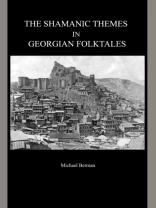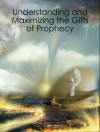"In Marxist anthropological theory, shamanism represented one of the early forms of religion that later gave rise to more sophisticated beliefs in the course of human advancement … The premise of Marxism was that eventually, at the highest levels of civilization, the sacred and religion would eventually die out" (Znamenski, 2007, p.322). Though history has of course since disproved this, the theory clearly had a great bearing on what was written in the former Soviet Union about shamanism, and also on people’s attitudes in the former Soviet Republics towards such practices.On the other hand, it has been suggested that "all intellectuals driven by nationalist sentiments directly or indirectly are always preoccupied with searching for the most ancient roots of their budding nations in order to ground their compatriots in particular soil and to make them more indigenous" (Znamenski, 2007, p.28). Although this might apply to searching for the roots of Christianity in Georgia, when it comes to searching for the roots of pagan practices, interest on the part of the people of Georgia is generally speaking not so forthcoming. This impasse, coupled with the effects of the repressions against religions, including shamanism, unleashed by the Soviet government between the 1930s and 1950s, along with the recent surge of interest in the Georgian Orthodox church, a backlash to the seventy years of officially sanctioned atheism, makes research into the subject no easy business. However, hopefully this study will at least in some small way help to set the process in motion.
Elliot D. Cohen
Shamanic Themes in Georgian Folktales [PDF ebook]
Shamanic Themes in Georgian Folktales [PDF ebook]
قم بشراء هذا الكتاب الإلكتروني واحصل على كتاب آخر مجانًا!
شكل PDF ● صفحات 125 ● ISBN 9781443808163 ● الناشر Cambridge Scholars Publishing ● نشرت 2009 ● للتحميل 6 مرات ● دقة EUR ● هوية شخصية 2611107 ● حماية النسخ Adobe DRM
يتطلب قارئ الكتاب الاليكتروني قادرة DRM












